Community and Conservation: GU-Q Staff Explore the Whale Sharks of Qatar
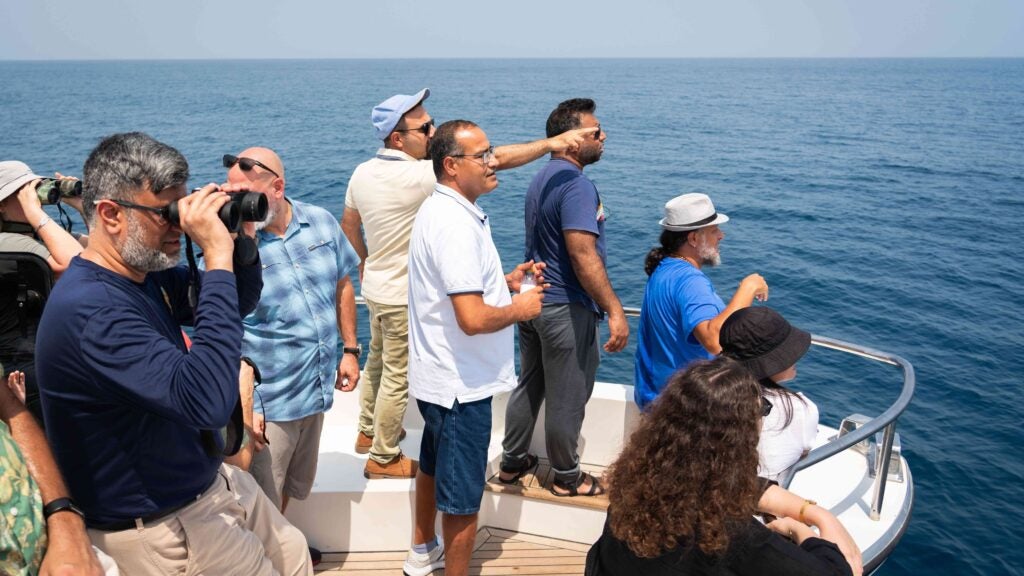
The latest Staff, Academic, and Administrative Professionals (Staff/AAP) community excursion saw more than 40 participating staff, faculty, and family members gather in the early morning, bound for a unique journey off the northeastern coast of Qatar. Their destination was the waters that host one of the planet’s most extensive congregations of whale sharks.
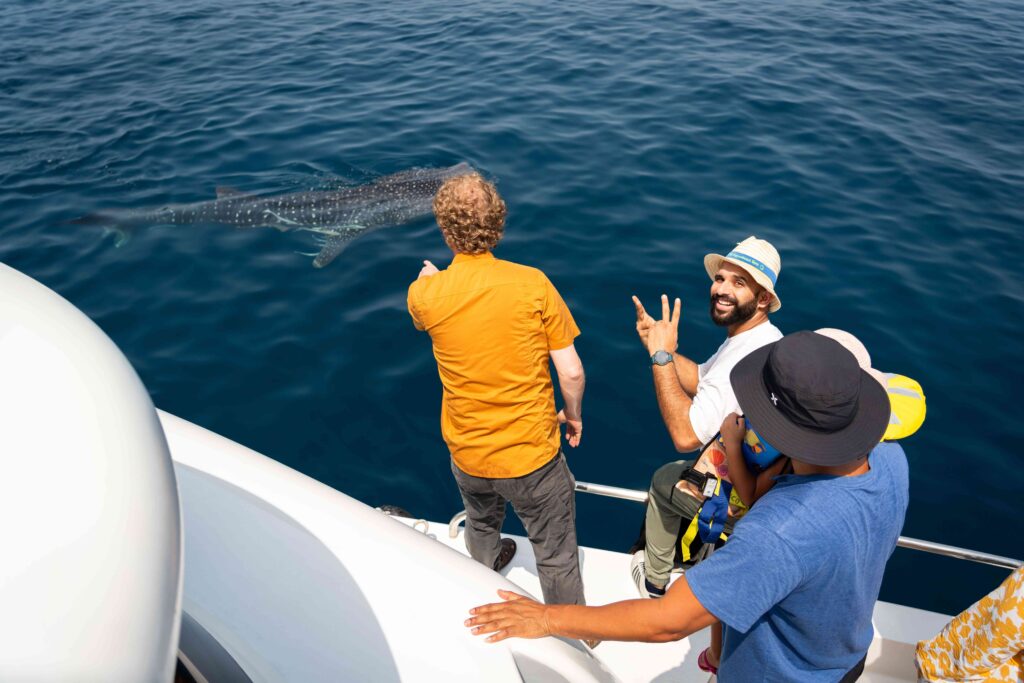
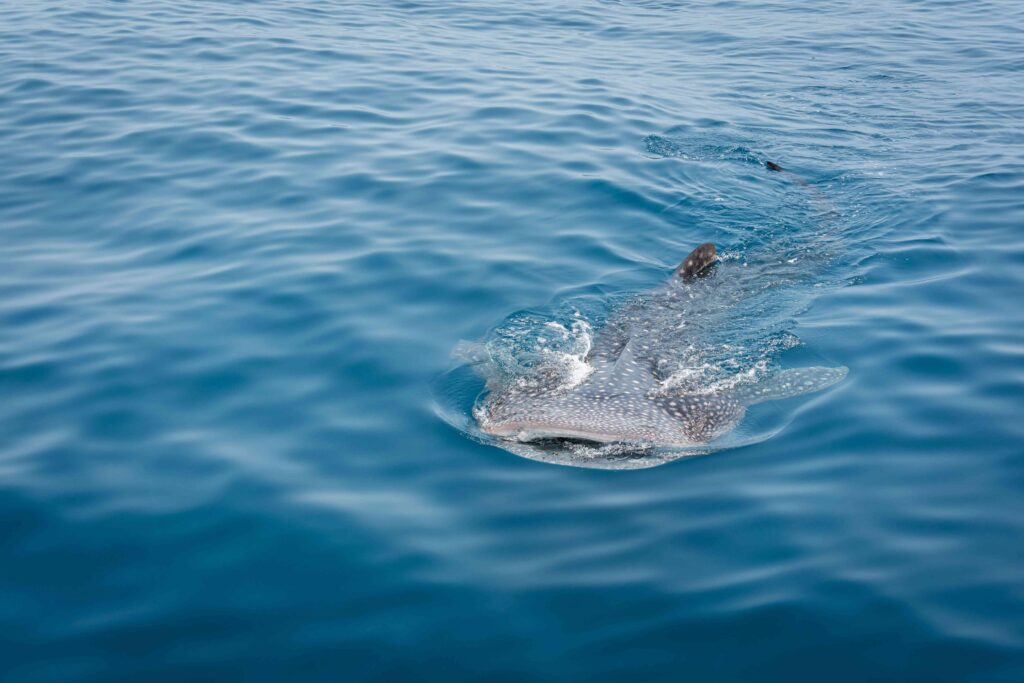
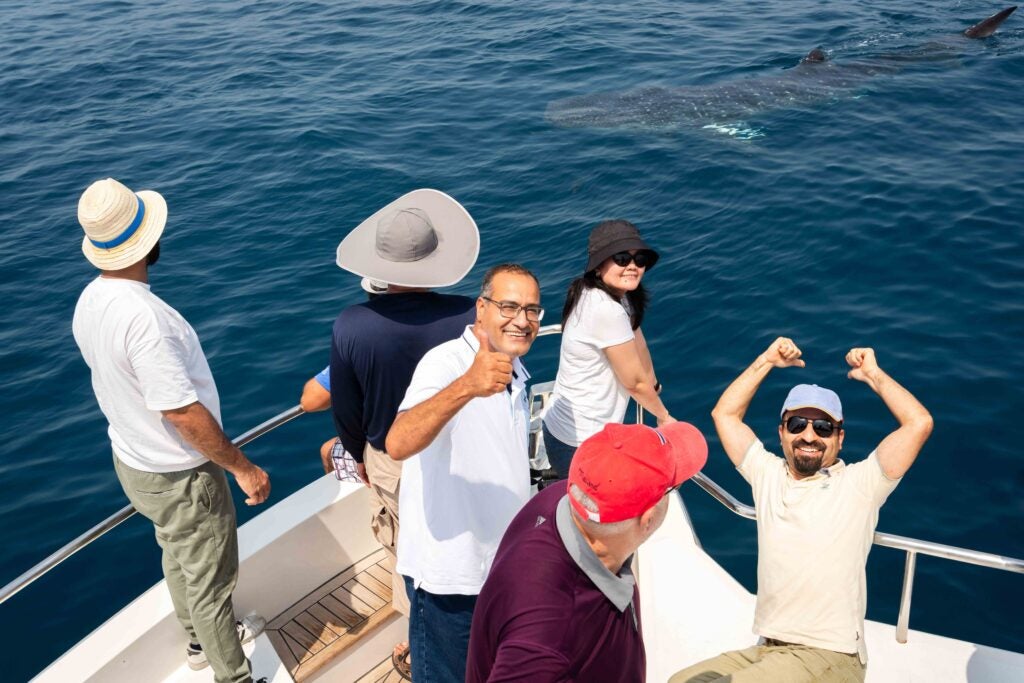
Each year there are hundreds of whale sharks drawn to the waters off the north east coast of Qatar in the months from April to September. The day-long excursion, aboard a Discover Qatar catamaran, offered the Hoya community a rare opportunity to get up close to these gentle giants, and to learn more about the rich underwater ecosystem that draws their numbers to the Qatari coastline.
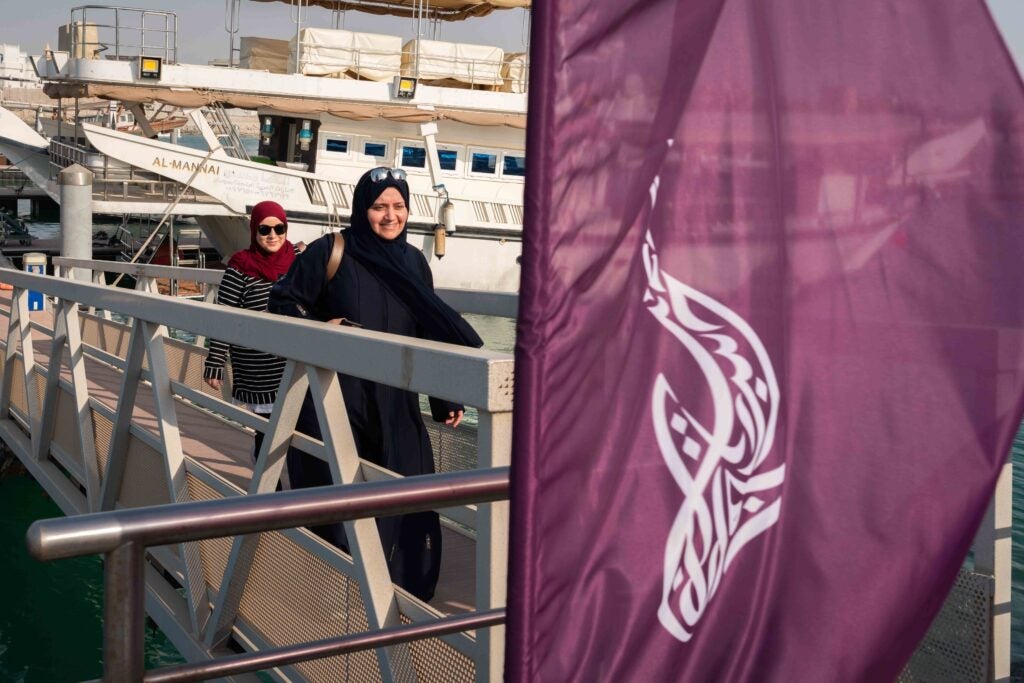
“This is one of few trips that invited the whole GU-Q community to take part in. Faculty, staff, and their spouses participated in this amazing adventure to explore these magnificent creatures while socializing with each other,” said organizer Arwa El-kahlout, Library Assistant, Vice President of GU Advisory Council and GU-Q Staff/AAP Elected Representative.
“About 30% of participants were faculty members who might not otherwise have the opportunity to interact with other staff on campus. Trips like these help to bridge the gap between different groups of employees on campus.”
Arwa also credits Staff/AAP Working Group member James Olsen, Manager of Instructional Design and Educational Continuity for contributing to the organization of the excursion.
During the summer months, the Gulf’s seawater typically hovers around 32-34 degrees. Yet, in the areas frequented for whale shark viewing, the temperature is a notably cooler 27 degrees. This cooler environment is an ideal breeding ground for fish and an abundance of fish eggs, the primary food source for whale sharks.
For participating community members, this trip was more than just observing whale sharks in their natural habitat. It was about understanding their habits, their feeding patterns, and the ongoing research in Qatar that has so far recorded over 600 individual whale sharks, a global record. “We saw about a hundred of them,” exclaimed Arwa, “It was simply a trip of a lifetime.”
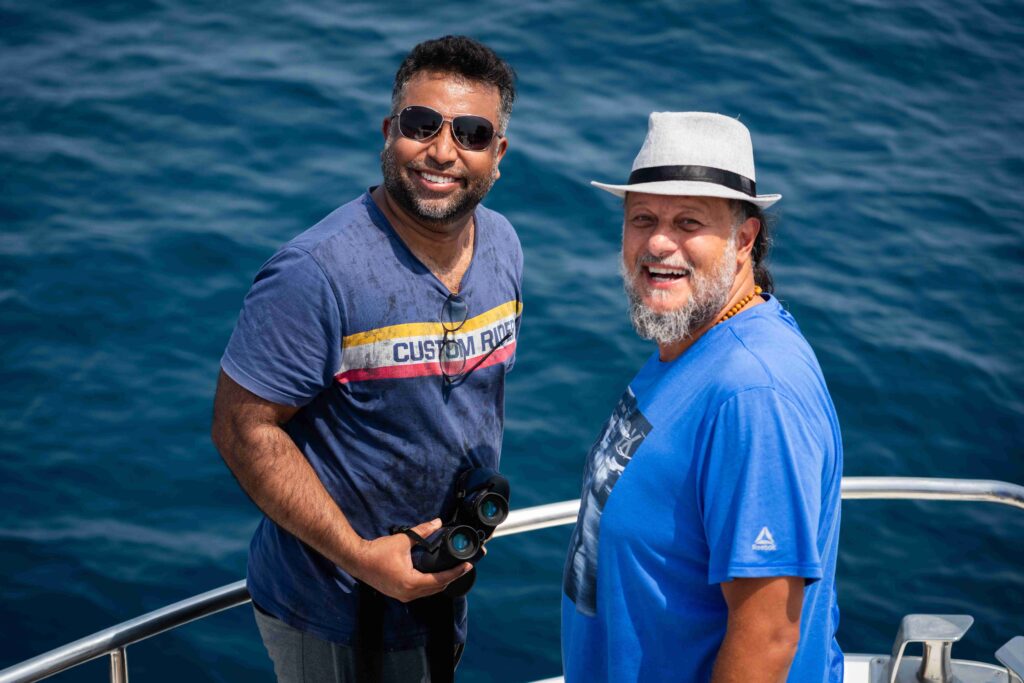
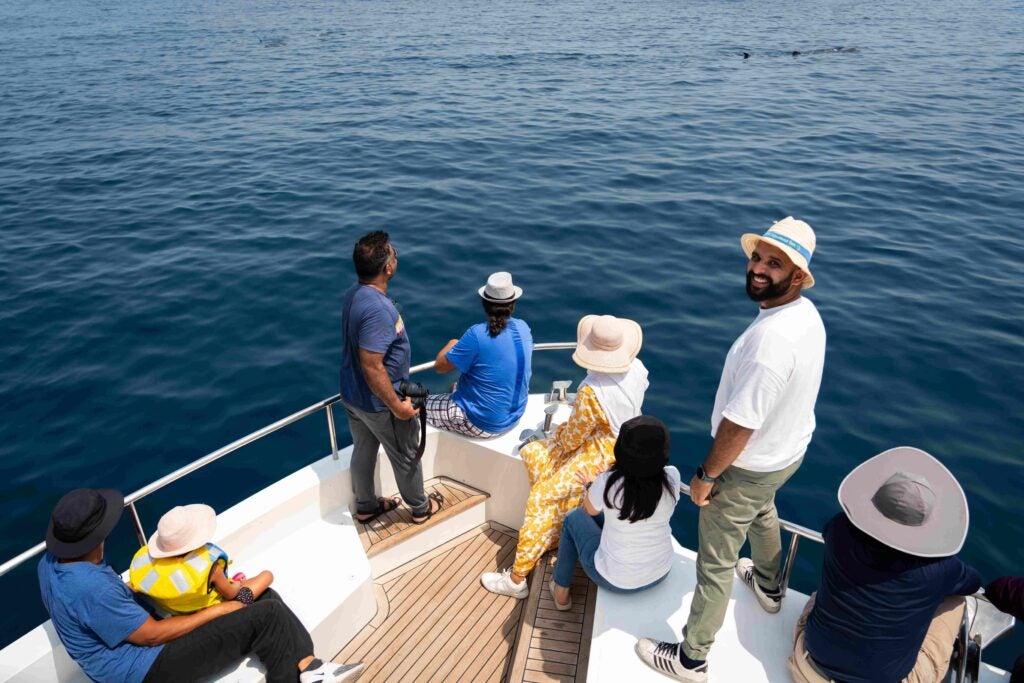
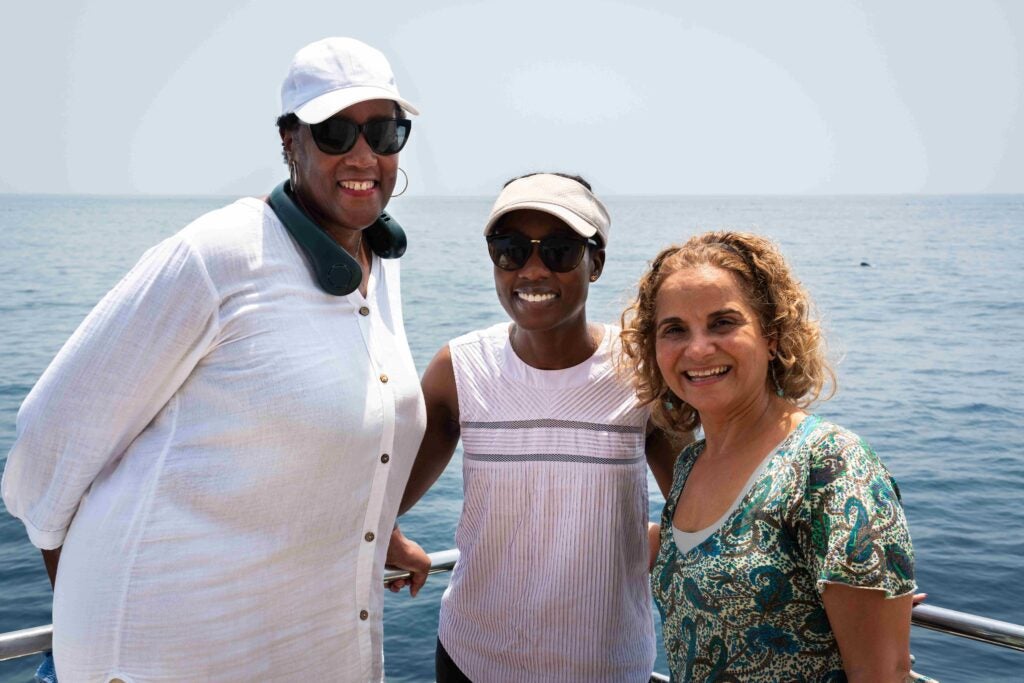
As the channel for staff and AAP professionals to voice their concerns and engage with university decision-makers, the Council has been the driving force behind various initiatives that foster growth, communication, and connection across the GU-Q campus.